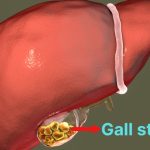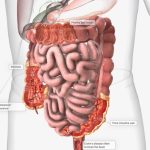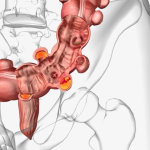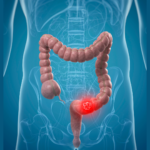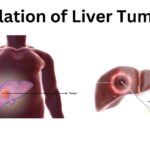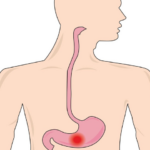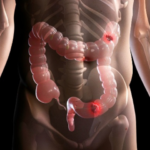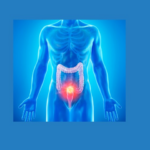Irritable bowel syndrome or IBS is a common disorder that affects the digestive system causing uncomfortable gastrointestinal disorder. People suffering from IBS experience excessive gas, abdominal pain and cramps. Some cases can be controlled by managing diet and making some lifestyle changes.
Different types of IBS:
Based on the type of bowel movement one has, our doctors at Sahasra Hospitals categorize IBS for it helps in deciding the kind of treatment required. The type of IBS one has depends on the abnormal bowel movements he/she experiences. The categories are as below:
- IBS with constipation (IBS-C)
- IBS with diarrhoea (IBS -D)
- IBS with mixed bowel habits (IBS-M)
Symptoms:
The signs of IBS vary from person to person but listed below are some symptoms that are commonly found:
- Abdominal pain or cramps
- Bloating
- Excess gas
- Bowel movements that are harder to looser than normal
- Mucus in poop
- Change in frequency of bowel movement
- Diarrhoea
- Constipation
Women suffering from IBS may experience higher levels of discomfort during their menstrual cycle.
Causes:
Our doctors broadly classify the causes of IBS as below:
Muscle contractions in the intestine: When food passes through the digestive system the inner layers of muscles of the digestive system contract. Stronger or weaker contractions of these muscles can lead to gas, bloating, either diarrhoea or constipation.
Nervous System: Abnormality of the nerves in the digestive system may cause discomfort when the abdomen stretches from gas or stool. Lack of poor coordination between the brain and intestine may cause the body to react to changes more than normal causing pain, diarrhoea/ constipation.
Changes in gut microbes: The bacteria and virus which normally exists in the digestive system contribute majorly to your gut health.
Stress: If you are undergoing stressful experiences very frequently you could be a victim to IBS.
If you have IBS, you may have noticed certain trigger symptoms such as certain kinds of food or medicine. Emotional stress can also be another trigger.
Risks of developing IBS: You may be at high-risk if
- You have a family history of IBS
- Stress and anxiety
- Food intolerance
- Digestive tract infection
Management and Treatment:
Like mentioned earlier there is no one size fit all treatment. Our doctors will understand your IBS condition and suggest treatments accordingly predominantly with dietary and lifestyle changes.
Some Food and Lifestyle Changes are listed below:
- Increase fibre intake
- Drink adequate amount of water
- Avoid more caffeine intake
- IBS might get you lactose intolerance so cut down on dairy intake.
- Include exercise as part of your daily schedule
- Reduce stress, practice meditation
- Reduce or quit smoking and drinking
- Regularize your meal habits
How can one take care of themself during IBS?
This condition of IBS is to stay with you forever but it is important that you identify and avoid your triggers such as food, medicine and lifestyle habits. Our doctors at Sahasra Hospitals not only help you with consultations but also can help you plan a perfect diet plan that suits your needs.
When to see a doctor?
See your doctor if you have a persistent change in bowel habits or other signs or symptoms of IBS. They may indicate a more serious condition, such as colon cancer. More-serious signs and symptoms include:
- Weight loss
- Diarrhoea at night
- Rectal bleeding
- Iron deficiency anaemia
- Unexplained vomiting
- Difficulty swallowing
- Persistent pain that isn’t relieved by-passing gas or a bowel movement
To know more and to get a consultation done please do contact us on +91 8880837000 for an appointment







